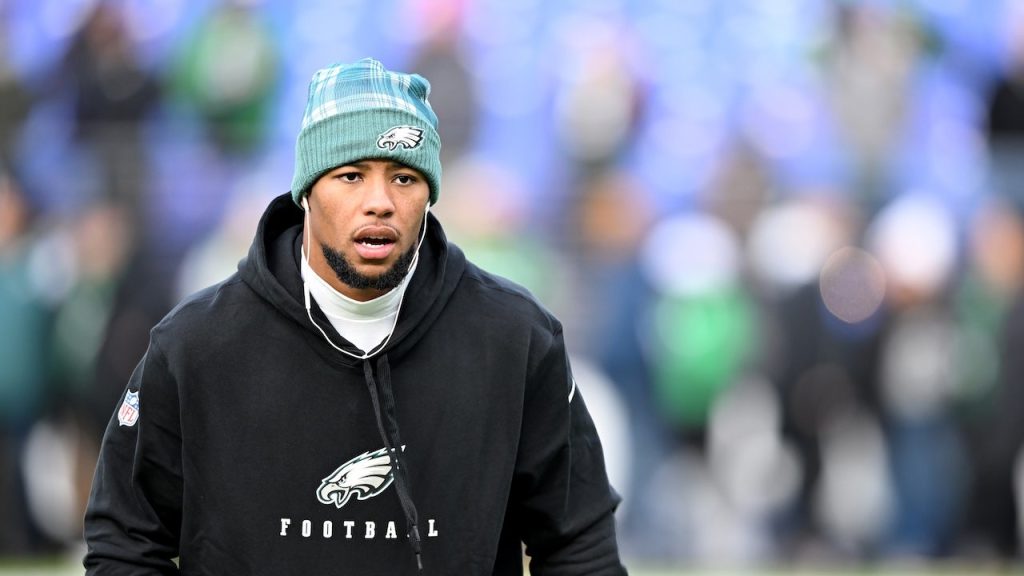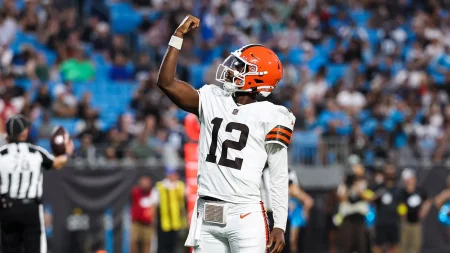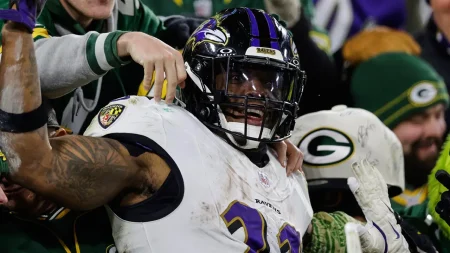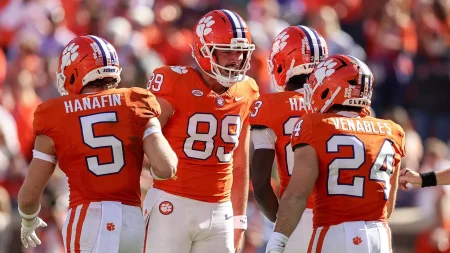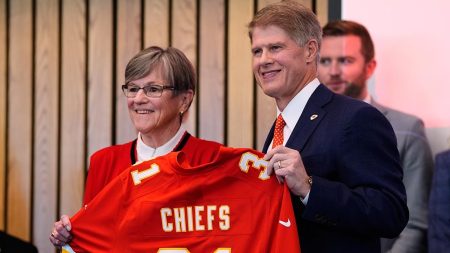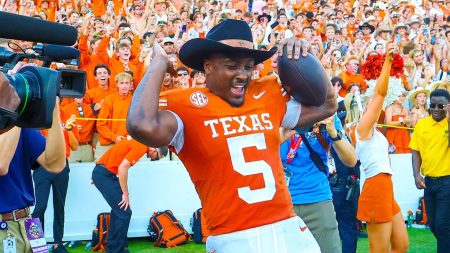The Philadelphia Eagles, a team steeped in rich football history and equally infamous for the fervent, often bordering on unruly, passion of their fanbase, find themselves once again in the national spotlight, not for their on-field prowess but for the actions of a fan. A viral video capturing a verbal altercation between an Eagles fan, later identified as Ryan Caldwell, and a female Green Bay Packers fan ignited a firestorm of criticism and renewed scrutiny of Eagles fans’ reputation. This incident occurred just days before the Eagles’ crucial divisional playoff game against the Los Angeles Rams, adding another layer of tension to an already high-stakes matchup. Caldwell’s subsequent firing from his job underscored the severity of the incident and further fueled the ongoing debate about fan behavior and the boundaries of acceptable conduct in a sporting environment.
The controversy surrounding the fan altercation took an unexpected turn when Rams rookie Jared Verse publicly expressed his disdain for Eagles fans in an interview. Verse’s comments, “I hate Eagles fans. They’re so annoying. I hate Eagles fans,” quickly spread, adding fuel to an already volatile situation. His remarks, delivered just days after the Caldwell incident, were met with criticism from some who viewed them as unprofessional and potentially inflammatory, while others saw them as an honest expression of frustration with the perceived behavior of a certain segment of Eagles fans. This public declaration of animosity further intensified the rivalry between the two teams and set the stage for a potentially explosive playoff encounter.
In the midst of this swirling controversy, Eagles running back Saquon Barkley emerged as an unlikely voice of reason. While acknowledging the passion of Eagles fans and the potential for a hostile environment at their home stadium, Barkley cautioned against adding fuel to the fire. He diplomatically characterized Verse’s comments as “not smart,” pointing out that such remarks would only serve to further motivate an already fervent fanbase. Barkley, drawing on his own experiences playing against the Eagles in Philadelphia, anticipated an even more boisterous and potentially hostile reception for Verse and the Rams in light of his comments.
Barkley’s perspective was echoed by veteran Eagles cornerback Darius Slay, who, while acknowledging the widespread dislike of Eagles fans, warned Verse of the potential consequences of antagonizing them, especially given the forecast of snow. Slay’s playful yet pointed reminder of the possibility of snowballs being thrown onto the field underscored the unique, and often unpredictable, nature of the Philadelphia fan experience. His comments painted a vivid picture of the charged atmosphere awaiting the Rams and served as a subtle warning to Verse about the potential repercussions of his words.
The incident involving Caldwell, captured on video and shared widely online, showed him engaging in a heated exchange with Packers fans, culminating in personal insults directed at a female fan. The video swiftly went viral, prompting widespread condemnation and calls for accountability. Caldwell issued a statement apologizing for his behavior while also claiming that the video did not show the full context of the situation and that his actions were not without provocation. Despite his apology, the damage was done. He was fired from his job, becoming a symbol of the consequences of crossing the line from passionate fandom to unacceptable behavior. The incident sparked broader conversations about fan conduct, the influence of alcohol, and the role of social media in amplifying such situations.
The Caldwell incident and Verse’s subsequent comments reignited discussions about the long and often turbulent history of Eagles fans and their reputation. From the infamous jail cells at Veterans Stadium, designed to hold unruly fans, to numerous anecdotes and incidents over the years, Eagles fans have cultivated a reputation for being passionate, boisterous, and sometimes crossing the line into aggressive behavior. While many defend their fervor as an expression of unwavering loyalty and a key element of the home-field advantage, others criticize it as excessive and often bordering on disrespectful. This latest controversy serves as a reminder of the complex and often contradictory nature of sports fandom and the ongoing debate about the acceptable boundaries of behavior in the pursuit of supporting one’s team.





